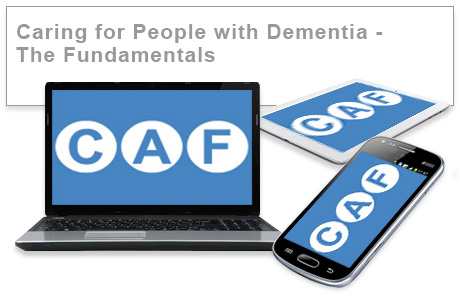common-assessment-framework-practitioners
Common Assessment Framework (Practitioners): e-learning training course

This comprehensive e-learning course for practitioners comprises six easy-to-follow units - an introduction and five study units. It covers the reasons behind the need for the Common Assessment Framework and the five key outcomes of the Every Child Matters policy. A separate CAF course is available for managers.
Unit Titles and Descriptions
Unit 1 - About the Course
Unit 2 - Introduction to the CAF
This unit sets the scene for the use of the CAF and covers the context for and rationale behind its introduction. The main principles and key aims are covered, providing the groundwork for the remainder of the course.
Unit 3 - Applying the CAF
This unit looks at good practice when undertaking an assessment within the Common Assessment Framework. Practitioners are given the opportunity to complete a ‘virtual check list’ with a child and their family. The issue of awareness of, and sensitivity towards children and their families' expectations is also addressed. After completing this unit, practitioners will understand that it is not always necessary to conduct an assessment every time they encounter a child or family with health and social care needs; indeed, it is important to be able to understand when an assessment is necessary and to follow good practice when conducting one.
Unit 4 - Completing the CAF Form
This unit offers good practice tips to help ensure the relevant information is recorded accurately and effectively. The unit contains an example of a poorly-written assessment form together with comments on how it could be improved. While some of the do’s and don’t's may appear rather obvious to experienced practitioners, it is useful to remember that even very basic errors in recording and sharing information can lead to extremely serious outcomes.
Unit 5 - Sharing Information
This unit explains that information sharing is a vital part of the overall Integrated Working strategy and the drive to meet the five key outcomes of Every Child Matters. After completing this unit practitioners will understand that effective information sharing ensures children and young people with additional needs are identified at an early stage. The unit goes onto explain the importance of everybody working with children and young people having a sound understanding of the basic principles of information sharing. The unit concludes by explaining why it is important to balance the need to share information with the right to privacy for children and families.
Unit 6 - Integrated Working
This unit provides background information about Every Child Matters and the need for Integrated Working. The unit is relevant for anyone who works with children and young people. After completing this unit, practitioners will understand why Integrated Working is important and how it operates in the context of Every Child Matters.
CPD Certificate: 5 hours
Learning Objectives: by the end of the course, practitioners will have learned about a wide range of issues, including:
- The basic principles of the CAF's standardised approach
- The six keys aims of the CAF
- Completing the pre-assessment process
- Identifying children with complex needs
- When (and when not) to do a CAF assessment
- The 3-step process as described by the Children's Workforce Development Council
- The Eight Stages as described in the CWDC practitioners’ handbook
- The value of involving other agencies and sharing information
- The need for respect for the child and family
- Why they should encourage the child / family to ask questions
- The manner in which the assessment is conducted
- The importance of identifying specific needs
- Their obligations when recording and managing information from an assessment.
Copyright Notice | Terms and Conditions | Privacy Statement | Disclaimer |
Copyright © 2006 - 2024 Embrace Learning Ltd.